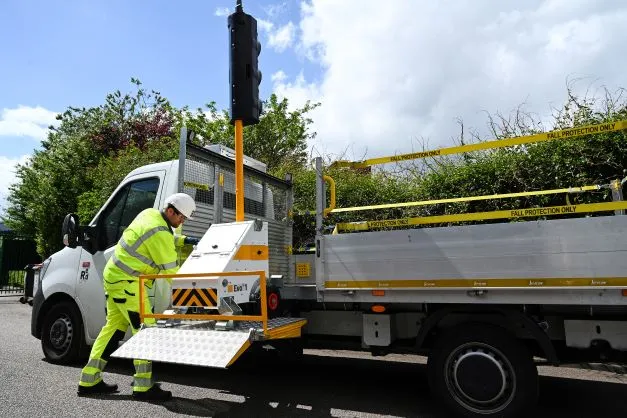April 4, 2016
Read time: 2 mins
Self driving cars may seem years away, but more than 1.5 million UK motorists a year now leave showrooms in cars featuring self-activating safety systems, according to analysis revealed by the Society of Motor Manufacturers and Traders (SMMT).
Data from SMMT and JATO Dynamics shows that more than half of new cars registered in 2015 were fitted with safety-enhancing collision warning systems, with other technologies such as adaptive cruise control, autonomous emergency braking and blind spot monitoring also surging in popularity.
Semi-autonomous vehicle technology not only eases the task of driving, but importantly, has the potential to reduce significantly the risk of serious accidents. And it is appearing on increasing numbers of cars being sold today.
Technologies that are rapidly becoming more commonplace include collision warning systems, which monitor the space ahead of the car using radar and cameras to provide obstacle warnings. These were fitted to 58.1 per cent of Britain’s record new car market in 2015 – whether as standard or a cost option. In contrast, just five years ago collision warning featured on only 6.8 per cent of new cars registered.
Autonomous emergency braking, which automatically applies the brakes to avoid or reduce the effects of an impact should the driver fail to react, was fitted to more than 1 million (39 per cent) of all new cars registered, with 18 per cent of buyers getting the safety tech as standard.
Blind spot monitoring was a feature of more than a third of new cars, while adaptive cruise control, which automatically adjusts the car’s speed to maintain a safe distance from vehicles ahead, was fitted to almost a third of new cars registered, either as standard or an option. Just five years ago, less than ten per cent of new cars were available with this technology, says SMMT.
Mike Hawes, SMMT chief executive, said, “Fully driverless cars are still a long way off from everyday use, but this data shows advanced autonomous technology is already making its way into the majority of new cars. Connected and autonomous cars will transform our society – vastly improving safety and reducing congestion and emissions – and will contribute billions to the economy. The UK is already earning a reputation as a global development hub in this field, thanks to significant industry and government investment, and the ability to trial these cars on the roads right now.”
Data from SMMT and JATO Dynamics shows that more than half of new cars registered in 2015 were fitted with safety-enhancing collision warning systems, with other technologies such as adaptive cruise control, autonomous emergency braking and blind spot monitoring also surging in popularity.
Semi-autonomous vehicle technology not only eases the task of driving, but importantly, has the potential to reduce significantly the risk of serious accidents. And it is appearing on increasing numbers of cars being sold today.
Technologies that are rapidly becoming more commonplace include collision warning systems, which monitor the space ahead of the car using radar and cameras to provide obstacle warnings. These were fitted to 58.1 per cent of Britain’s record new car market in 2015 – whether as standard or a cost option. In contrast, just five years ago collision warning featured on only 6.8 per cent of new cars registered.
Autonomous emergency braking, which automatically applies the brakes to avoid or reduce the effects of an impact should the driver fail to react, was fitted to more than 1 million (39 per cent) of all new cars registered, with 18 per cent of buyers getting the safety tech as standard.
Blind spot monitoring was a feature of more than a third of new cars, while adaptive cruise control, which automatically adjusts the car’s speed to maintain a safe distance from vehicles ahead, was fitted to almost a third of new cars registered, either as standard or an option. Just five years ago, less than ten per cent of new cars were available with this technology, says SMMT.
Mike Hawes, SMMT chief executive, said, “Fully driverless cars are still a long way off from everyday use, but this data shows advanced autonomous technology is already making its way into the majority of new cars. Connected and autonomous cars will transform our society – vastly improving safety and reducing congestion and emissions – and will contribute billions to the economy. The UK is already earning a reputation as a global development hub in this field, thanks to significant industry and government investment, and the ability to trial these cars on the roads right now.”







